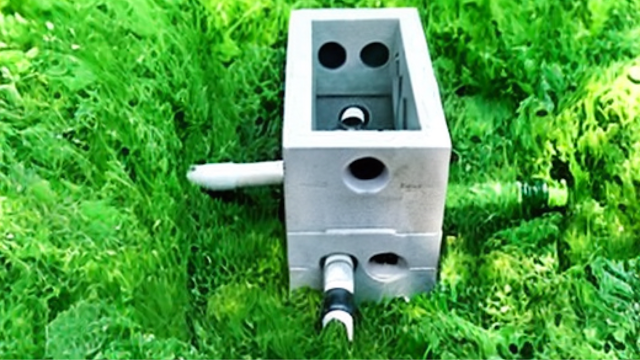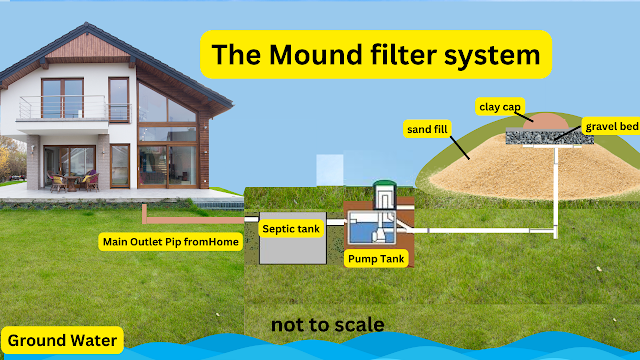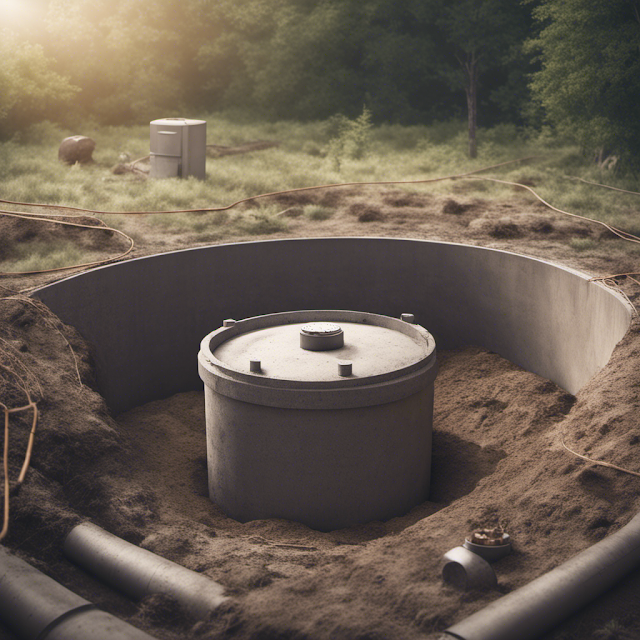Septic Tank Pumping Near Me: A Comprehensive Guide
From 40 Years Carrying out Septic Tank Pumping our guide
1.What is a Septic Tank and Why is Pumping Important?
A septic tank is a vital component of a home's plumbing system, designed to collect and treat wastewater. It is an underground container that holds the wastewater from the house long enough for the solids to settle at the bottom and the liquids to flow out into the drain field. The function of a septic tank is to separate and break down the solids and treat the wastewater before releasing it into the environment.
Septic tank pumping is essential to ensure that the system is functioning correctly. The solids that accumulate at the bottom of the tank must be removed periodically to prevent the system from becoming clogged and overflowing. The process involves pumping the contents of the tank out and disposing of it properly. If the septic tank is not pumped regularly, it can lead to backups, clogs, and even system failure, which can be costly to repair.
In addition to preventing costly repairs, regular septic tank pumping can also prevent health hazards. When a septic tank becomes full, it can lead to sewage backups and even the release of harmful bacteria and chemicals into the environment. Therefore, pumping your septic tank is an essential maintenance task that can extend the life of your septic system and prevent costly repairs and health hazards.
The frequency of septic tank pumping depends on several factors, including the size of the tank, the number of people in the home, and the amount of wastewater generated. However, in general, it is recommended to have your septic tank pumped every three to five years. Some systems may require more frequent pumping, while others can go longer between pumpings.
The size of your septic tank plays a significant role in determining how often it should be pumped. A larger tank can hold more waste, which means it can go longer between pumpings. Conversely, a smaller tank may need to be pumped more frequently. The number of people in the home also affects how often the septic tank needs to be pumped. The more people in the home, the more wastewater is generated, and the more often the tank will need to be pumped.
The amount of wastewater generated also affects how often the septic tank needs to be pumped. If you have a large family or use a lot of water, your septic tank may need to be pumped more frequently. On the other hand, if you are a single person or use very little water, your septic tank may be able to go longer between pumpings.
It is essential to keep up with regular septic tank pumpings to ensure the proper functioning of your system. Neglecting this maintenance task can lead to costly repairs and damage to your property.
3.Signs That Your Septic Tank Needs Pumping
It is essential to know the signs that indicate your septic tank needs pumping. If you are unsure when your septic tank was last pumped, there are several signs that may indicate it's time for pumping. These signs include slow draining sinks and toilets, sewage odors in your home or yard, and sewage backups.
Slow draining sinks and toilets are a sign that the septic tank is becoming full and needs to be pumped. When the tank is full, the wastewater cannot flow through the system as quickly, causing drains to become slow.
Sewage odors in your home or yard are another sign that your septic tank needs pumping. The odor occurs when the system is overloaded and cannot handle the volume of wastewater, causing the sewage to back up and emit a foul smell. This can be particularly unpleasant and can even be hazardous to your health.
Sewage backups are the most obvious sign that your septic tank needs pumping. If you experience backups in your toilets or drains, it is a clear indication that your septic tank is full and needs to be pumped immediately. Ignoring this sign can lead to severe damage to your plumbing system and your property.
It is essential to keep an eye out for these signs and have your septic tank pumped regularly to prevent costly repairs and damage to your property.
4.How to Find a Reliable Septic Tank Pumping Service Near Me
Finding a reliable septic tank pumping service can be a daunting task, but it is essential to find one to ensure the proper functioning of your septic system. Here are some tips to help you find a reliable septic tank pumping service near you:
Ask for referrals - One of the best ways to find a reliable septic tank pumping service near you is to ask for referrals from friends, family, or neighbors. If they have had a positive experience with a local service provider, chances are you will too.
Do your research - Before hiring a septic tank pumping service, do your research. Look for online reviews and check the company's website to ensure they are licensed, insured, and have experience in the industry. You can also check with your local Better Business Bureau to see if there have been any complaints against the company. Although not all are listed for example in Atlanta Georgia they have 142 accredited but there is 438 listed in Atlanta offering Septic Tank Cleaning Service!
Get multiple quotes - When hiring a septic tank pumping service, it's essential to get multiple quotes to ensure you are getting a fair price. Be sure to ask for a detailed breakdown of the services included in the quote. While this can be a way don't always make a judgement or decision only on price. Sometimes there's a good reason someone is the cheapest. Tread with caution.
When selecting a septic tank pumping service, it's crucial to choose a company that is licensed, insured, and experienced. By following the tips above, you can find a reliable septic tank pumping service near you.
5.What to Expect During a Septic Tank Pumping Service
When you hire a septic tank pumping service, you should expect the following:
Inspection - Before pumping your septic tank, the service provider will typically perform a thorough inspection of your system to ensure it's functioning correctly. This inspection can include checking the inlet and outlet pipes, inspecting the tank for damage, and cleaning the baffles.
Pumping process - During the pumping process, the service provider will use a large hose to pump the wastewater and sludge out of your septic tank and into a tanker truck. They will then dispose of the waste at a licensed treatment facility.
System maintenance - After pumping your septic tank, the service provider may also perform system maintenance tasks, such as checking the inlet and outlet pipes, inspecting the tank for damage, and cleaning the baffles.
By understanding what to expect during a septic tank pumping service, you can ensure that the job is done correctly and that your septic system is functioning properly.
6.Conclusion
Septic tank pumping is an essential maintenance task that should be performed regularly to ensure the proper functioning of your septic system. Regular septic tank pumping can prevent costly repairs and health hazards.
To find a reliable septic tank pumping service near you, ask for referrals, do your research, and get multiple quotes. When you hire a septic tank pumping service, you should expect an inspection, the pumping process, and system maintenance.
By following the tips and guidelines provided in this guide, you can easily find a reliable septic tank pumping service near you and ensure your septic system continues to function properly for years to come.
7.FAQs
What happens if I don't pump my septic tank regularly? If you don't pump your septic tank regularly, solids can build up and clog the system, leading to backups, sewage odors, and even system failure. This can result in costly repairs and damage to your property.
How often should I have my septic tank pumped? The frequency of septic tank pumping will depend on several factors, including the size of your septic tank, the number of people living in your home, and the amount of wastewater generated. In general, a septic tank should be pumped every three to five years. However, some systems may require more frequent pumping, while others can go longer between pumpings.
What should I look for when hiring a septic tank pumping service? When hiring a septic tank pumping service, you should look for a licensed, insured, and experienced company with positive online reviews. You should also ask for multiple quotes and a detailed breakdown of the services included in the quote.
What can I do to maintain my septic system between pumpings? To maintain your septic system between pumpings, you should avoid flushing non-biodegradable items down the toilet, conserve water, and have your system inspected regularly. You should also avoid pouring grease and oil down the drain, which can clog the system.
Can I pump my septic tank myself? It is not recommended to pump your septic tank yourself, as it requires specialized equipment and training. It's best to leave this task to the professionals to ensure the job is done correctly and safely.
How do I know if my septic system is failing? Signs of a failing septic system include slow draining sinks and toilets, sewage odors in your home or yard, sewage backups, and standing water near the drain field.
What should I do if my septic system fails? If your septic system fails, you should immediately stop using water and contact a professional septic tank pumping service. They can assess the situation and make the necessary repairs to get your system back up and running.
Can I plant trees or build over my septic system? It is not recommended to plant trees or build over your septic system. The roots from trees can damage the system, and building over the system can make it difficult to access for maintenance and repairs.
What happens to the waste after my septic tank is pumped? The waste is transported to a licensed treatment facility, where it is treated and processed. The processed waste can be used as fertilizer or disposed of in a landfill.
How much does it cost to pump a septic tank? The cost of septic tank pumping can vary depending on the size of the tank, the location of the system, and the amount of wastewater generated. On average, the cost of septic tank pumping ranges from $250 to $500.
What should I do if I just moved into a home with a septic system? If you just moved into a home with a septic system, it's essential to have the system inspected and pumped if necessary. You should also familiarize yourself with the location of the septic system, its maintenance needs, and what can and cannot be flushed down the toilet.
Can I use additives to maintain my septic system? While some septic system additives claim to improve system performance, most experts recommend against using them. The bacteria in the septic tank naturally break down solids, and adding additives can disrupt the natural balance of the system.
Can I install a garbage disposal with a septic system? Garbage disposals can increase the amount of solids in your septic tank, which can lead to more frequent pumpings. If you have a septic system, it's best to avoid using a garbage disposal.
Can I use bleach and other household cleaners with a septic system? While using bleach and other household cleaners in moderation is generally safe for septic systems, it's essential to avoid pouring large amounts down the drain. These chemicals can disrupt the natural balance of the system and lead to clogs.
What should I do if I suspect a problem with my septic system? If you suspect a problem with your septic system, it's essential to contact a professional septic tank pumping service immediately. Ignoring signs of a failing system can lead to costly repairs and damage to your property
Maintaining a septic system requires regular pumping, inspections, and proper use. By following the tips and guidelines provided in this article and addressing any issues promptly, you can ensure that your septic system continues to function correctly for years to come.

.png)
.png)
.png)





.png)




Comments
Post a Comment